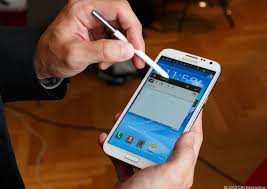Since 1995 there has been a huge technological change for
humankind, and to the present time this technology continues evolving. We are
talking about mobile cell phones, so we will mention four main eras of the mobile
evolution.

The “Brick-looking+Antenna Era,” this era ranges from 1995
to 1998. We can also call it the LED display era because most displays only
showed numbers in a tiny display to make your calls. These phones were very big
in size, they were usually black, and they had huge antennas; some of them
retractable but still very long. By 1997, external antennas had been replaced
by internal antennas, so you would no longer see them sticking out of your
phone. In 1998, some companies like Nokia started to make variations to their
models, such as the bringing back of their external antennas, but at the same
time they offered you a wide selection of color cases.
From 1999 to 2001, we will call it the “Smaller phone-era.”
Because phones didn’t need external antennas anymore, cell phones became
smaller in size, and also this gave more space for better displays. These began
to show more information, such as text and small images, so you were able to
send text messages with these phones.

Years 2002 to 2006 marked a huge difference in mobile
technology; we will call this “The Color Era.” Here we have the first color
screen phones, such as the Nokia 7650. These first phones usually had a
built-in low-resolution camera. In 2003 Samsung introduced the first clamshell
cell phone model. These models featured better camera and two screens, one
inside the clamshell and an outer screen. By 2004, Motorola had released one of
the best-sold phones, the V3; it had the same clamshell idea, but it was more
stylish. It also had a larger screen, and it was a little bit flatter too.
After this, every company decided to make more stylish models that included
more functions, such as the w800i from Sony, which incorporated music into
these devices.

In 2007, the iPhone was released and it marked the start of
a big leap on mobile technology, “The Modern Era.” The iPhone featured one of
the first mobile operating systems, which allowed the creation of applications
that could be run on the system. We can also call this the multi-touch era that
allowed the user to touch and make gestures on the screen to give instructions
to the system. After the release of the iPhone, other operating systems were
developed, and they included a qwerty keyboard in their hardware for a more
business-oriented market. Around 2008, phones were becoming bigger in size and
in screen for a better user-interface experience, and also for the
incorporation of more sophisticated virtual qwerty keyboards. In 2011, Samsung
released one of the best selling phones of all times, the Galaxy SII. This
phone became a benchmark for the whole mobile market because it included all
the things you need to be totally communicated. It included a whole new way to
do business, and it also incorporated entertainment. Nowadays, Samsung is still
dominating the mobile market with products such as the Galaxy S3 and the Galaxy
Note 2. This last one is changing the touch screen idea because it includes the
S-Pen, the stylus that allows you to create more ways of communicating and
expressing yourself. You are no longer chained to the idea of just typing; you
can handwrite, draw, color, do virtual collages, etc., and of course you can
still make calls and send SMSs.

We don’t know what kind of new technology awaits us, but as
we can see from past “Eras,” things will get greater. We’ve seen and touched
the evolution from the huge heavy phones to the slick, stylish and multipurpose
devices we have now. It is only a matter of time before we can see Star Wars
technology in our hands.
No comments:
Post a Comment